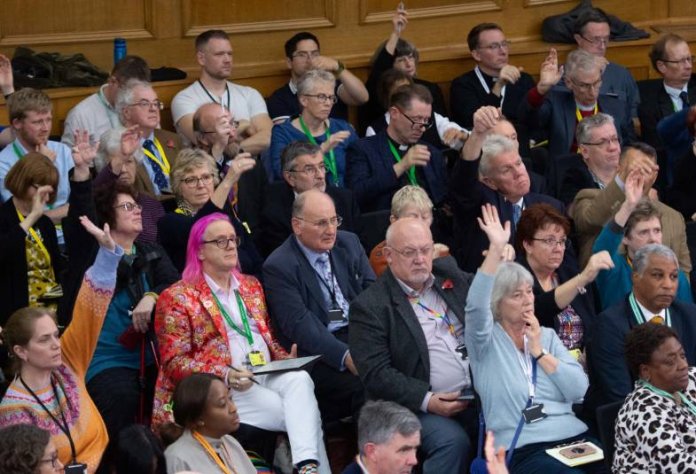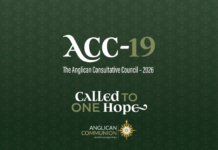General Synod today approved the first consideration of the draft Redress Measure which makes legal provision for the creation of a national redress scheme for victims and survivors of Church-related abuse. Today’s decision is the next step in delivering on the commitment made by the Church in its response to the Independent Inquiry into Child Sexual Abuse (IICSA) and is a tangible way of saying sorry to victims and survivors for past failings in safeguarding.
Overwhelming support for ongoing work on redress was approved by Synod at its July meeting which heard that financial payments will be offered alongside therapeutic, spiritual and emotional support, acknowledgment of wrongdoing on the part of the Church, and apology and support for rebuilding lives.
The Bishop of Winchester, Philip Mounstephen, Chair of the Redress Project Board introduced the draft measure (full speech below) noting that it does not contain every single detail of the Scheme. He stressed that questions and comments from Synod were a critical way of continuing to shape the scheme.
Further details on how the Scheme will run will be developed as the Measure is revised and will be expressed in the Rules, being drawn up by the Project Board which includes survivor and victim representation and in consultation across the Church. These Rules along with the revised Measure are both expected to come back to Synod in July 2024 but with a written update to be given at the February 2024 Synod. Bishop Philip stressed that had the Measure not been introduced until all the detail was finalised then it would put the Scheme back by a year or two.
The draft Measure makes provision for a single ‘redress body’ to deliver the Scheme. A procurement process is currently underway to identify a suitable supplier, who will work with the Project Board and Team for around nine months to help advise on the technical stages of designing the Scheme before it is in operation. The successful supplier is expected to be announced early in 2024. A key consideration is that any victim or survivor who comes forward must have a clear and simple pathway to access the scheme with funding and support details worked out by the different bodies involved behind the scenes.
The draft Measure reflects the reality that the Church of England comprises a large number of autonomous office holders and bodies, many of them charitable, which are bound together by a shared missional pastoral purpose and the Measure’s provisions are intended to help all parts of the Church, collectively, to show their contrition and repentance for the Church’s failings. There will be a detailed funding formula, and provisions to ensure that no part of the Church will be asked to contribute financially beyond their means (this will include an upper limit ‘cap’ and a means test on unrestricted funds). In June it was announced that the Church Commissioners’ board, which has always been committed to supporting the Scheme, had agreed to allocate £150m in funding to be released once the key parameters of the Scheme are in place. This funding allocation means financial awards can be administered promptly once the Scheme is in operation.
Bishop Philip added: “I hope we will continue to work constructively across Synod and the wider church – and, crucially, with survivors, to put in place a Redress Scheme that is robust, fit for purpose and, above all else, provides survivors of Church-based abuse with the redress they most certainly deserve.”
A written update on the Scheme including the chosen supplier and details of the proposed financial awards will be brought to Synod in February 2024 with the Revised Measure expected to return to Synod in July 2024 followed by the Final Drafting and Final Approval stages.
Notes
The revision committee stage, which now begins, will take into account comments made by Synod members during this session (and in writing to revisioncommittee@churchofengland.org not later than 5:30 pm on the 19 December 2023). Further details in the General Synod explanatory notes and policy paper.



